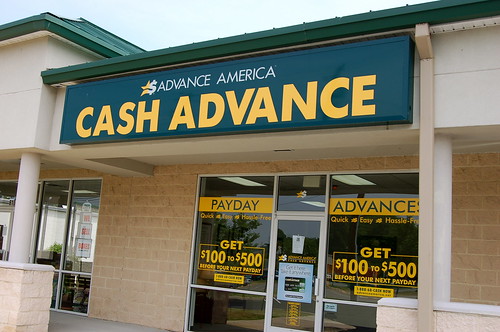Wednesday, March 10, 2010
Benton Harbor Editorial Calls for More Investment in Young Children and Their Mothers
"Michigan's Children is a Lansing-based organization that advocates on the behalf of children and their families. According to a recent Budget Basics report issued by the organization, "More than one of every five (22.4 percent) Michigan children under the age of 5 lives in poverty, and poverty rates are disproportionately high for children of color."
Let me repeat: More than one in every five Michigan children live in poverty. If this was the flu, it would be called an epidemic. Yet, I hear few, if any, of our leaders in Lansing or locally talking about the issue."
The full editorial may be found at:
heraldpalladium.com/articles/2010/03/10/opinion/editorials/1261636.txt
Consumer protection bill lacking... consumer protections

As the US Senate works to draft a consumer protection bill, a key piece has been negotiated out of the bill that would affect millions of low-earning consumers. The bill's drafters have removed a key provision in the legislation that would have empowered federal authorities to crack down on payday lenders.
From the New York Times:
Why remove legislation that would address one of the largest financial scams in the country? The only blowback is apparently from payday Lenders themselves, who have financially supported several senators in the past. It seems that politics are once again getting in the way of progress.The Senate Banking Committee’s chairman, Christopher J. Dodd, Democrat of Connecticut, proposed legislation in November that would give a new consumer protection agency the power to write and enforce rules governing payday lenders, debt collectors and other financial companies that are not part of banks.
Late last month, Mr. Corker pressed Mr. Dodd to scale back substantially the power that the consumer protection agency would have over such companies, according to three people involved in the talks.
Mr. Dodd went along, these people said, in an effort to reach a bipartisan deal with Mr. Corker after talks had broken down between Democrats and the committee’s top Republican, Senator Richard C. Shelby of Alabama. The individuals, both Democrats and Republicans, spoke on condition of anonymity because they were not authorized to discuss the negotiations.
Under the proposal agreed to by Mr. Dodd and Mr. Corker, the new consumer agency could write rules for nonbank financial companies like payday lenders. It could enforce such rules against nonbank mortgage companies, mainly loan originators or servicers, but it would have to petition a body of regulators for authority over payday lenders and other nonbank financial companies.
Consumer advocates said that writing rules without the inherent power to enforce them would leave the agency toothless.
W. Allan Jones, who started Check Into Cash, in Cleveland, Tenn., in 1993, has been a longtime friend and supporter of Mr. Corker’s. The company says it is now the country’s third-largest payday-lending chain, with 1,100 stores in 30 states. Payday loans are short-term, high-interest loans — typically 400 percent on an annualized basis — to help borrowers cover expenses until their next paycheck. Many take out more loans, digging themselves deeper into debt.Payday lenders are great at accomplishing one thing: making money. And yes, that money is taxable and brings in revenue to our country. According to the times, "The industry’s trade group estimated that payday loan companies contributed $10 billion to the economy in 2007, and directly employed 77,000 people."
But is this the kind of economic gain we want in our country, the kind that preys on our citizens, increases our debt, and sustains poverty? Aren't these the vary reasons we got ourselves into this economic mess in the first place?
If the feds won't regulate these organizations, we need to take back our communities on a local level. Initiatives such as Bank On San Francisco (and soon to be Bank On Kalamazoo) work with local mainstream financial organizations to open up credit and short term loans to low-income and consumers with debt. Through this kind of work, we can eliminate the market for payday lenders by offering a reasonable alternative.





